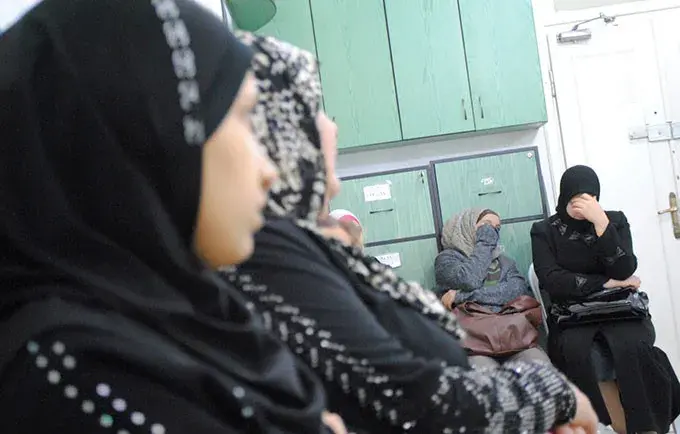Nearly half of all pregnancies are unintended—a global crisis, says new UNFPA report
War, humanitarian emergencies create conditions for unintended pregnancies to climb further
Cairo, 17 May 2022 — Nearly half of all pregnancies, totaling 121 million each year throughout the world, are unintended. For the women and girls affected, the most life-altering reproductive choice—whether or not to become pregnant—is no choice at all, explains the State of World Population 2022 report, released by UNFPA, the United Nations sexual and reproductive health agency.
The groundbreaking report, “Seeing the Unseen: The case for action in the neglected crisis of unintended pregnancy,” warns that this human rights crisis has profound consequences for societies, women and girls and global health. Over 60 per cent of unintended pregnancies end in abortion and an estimated 45 per cent of all abortions are unsafe, causing 5 – 13 per cent of all maternal deaths, thereby having a major impact on the world’s ability to reach the Sustainable Development Goals.
Wars, conflicts and crises around the world are expected to drive an increase in unintended pregnancies, as access to sexual and reproductive health services are disrupted and sexual violence increases.
“This report is a wakeup call. The staggering number of unintended pregnancies represents a global failure to uphold women and girls’ basic human rights,” says UNFPA Executive Director Dr. Natalia Kanem. “For the women affected, the most life-altering reproductive choice—whether or not to become pregnant—is no choice at all. By putting the power to make this most fundamental decision squarely in the hands of women and girls, societies can ensure that motherhood is an aspiration and not an inevitability.”
Gender inequality and stalled development drive high rates of unintended pregnancies
Globally, an estimated 257 million women who want to avoid pregnancy are not using safe, modern methods of contraception, and where data is available, nearly a quarter of all women are not able to say no to sex.
“An unintended pregnancy is not necessarily a personal failure and may be due to the lack of autonomy society allows or the value placed on women’s lives.” says UNFPA Arab States Regional Director, Dr. Luay Shabaneh. “Harmful norms and stigma, sexual violence and reproductive coercion, judgmental attitudes or shaming in health services, poverty and stalled economic development and gender inequality are all factors that reflect the pressure societies place on women and girls to become mothers.” added Dr. Shabaneh.
When crisis hits, unintended pregnancies climb
Crisis and conflict rob women of their agency at all levels, drastically increasing the risk of unintended pregnancy at the moment it is most threatening. Women often lose access to contraceptives and sexual violence increases, with some studies showing that over 20 per cent of refugee women and girls will face sexual violence.
The responsibility to act
The report shows how easily the most fundamental rights of women and girls are pushed to the backburner in times of peace and in the midst of war. It calls on decision-makers and health systems to prioritize the prevention of unintended pregnancies by improving the accessibility, acceptability, quality and variety of contraception and greatly expanding quality sexual and reproductive health care and information.
“We must make pregnancy an aspiration not an inevitability, by empowering women and girls to make affirmative decisions about their sexual and reproductive health and motherhood.” notes Dr. Shabneh.
The report urges policy makers, community leaders and all individuals to empower women and girls to make affirmative decisions about sex, contraception and motherhood, and to foster societies that recognize the full worth of women and girls.
###
Notes to editors
The State of World Population report is UNFPA’s annual flagship publication. Published yearly since 1978, it shines a light on emerging issues in the field of sexual and reproductive health and rights, bringing them into the mainstream and exploring the challenges and opportunities they present for international development.
This report’s analysis builds upon new data from our partner, the Guttmacher Institute, released on 29 March.
As the United Nations sexual and reproductive health agency, UNFPA helps people obtain contraception and life-saving reproductive health services and information and empowers women and girls to make informed decisions about their bodies and lives.
- You can access the UNFPA State of World Population report, Seeing the Unseen: The case for action in the neglected crisis of unintended pregnancy here: unf.pa/swopen
- For more information about UNFPA, please visit: arabstates.unfpa.org/en
- For interviews or more information, please contact:
Samir Aldarabi: aldarabi@unfpa.org, +201 068484879




